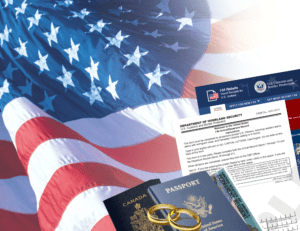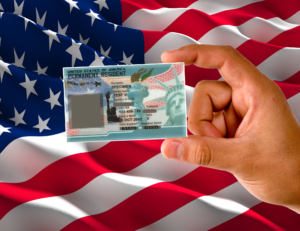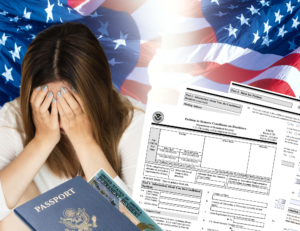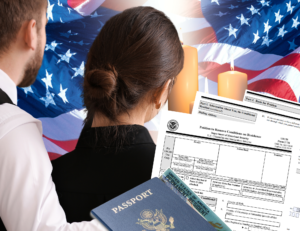Are you Canadian and applying for a marriage-based green card? There are special (usually positive) issues for Canadians as related to entering the US.
 Canadians are entitled to various benefits when they enter the US. First, the visa requirements are much more lax for Canadians. Most Caan tourists do not even need a visa in their passport to enter. Many Canadians entering the US on certain visas such as the H1B or L can process their visas at the border and may in some situations be able to enter with just an I-797 Notice of Action Approval Notice. Also, Canadians are entitled to TN visas, which are available to both Canadians and Mexicans. Canadians can apply for TN visas right at the border or airport, but Mexicans must apply at an embassy, which makes the process much slower and more expensive.
Canadians are entitled to various benefits when they enter the US. First, the visa requirements are much more lax for Canadians. Most Caan tourists do not even need a visa in their passport to enter. Many Canadians entering the US on certain visas such as the H1B or L can process their visas at the border and may in some situations be able to enter with just an I-797 Notice of Action Approval Notice. Also, Canadians are entitled to TN visas, which are available to both Canadians and Mexicans. Canadians can apply for TN visas right at the border or airport, but Mexicans must apply at an embassy, which makes the process much slower and more expensive.
With all that background, you will not be surprised that Canadians are in a better situation than most when applying for a marriage-based green card. That is, if you are applying for a marriage-based green card, you need to show proof of entry, usually with form I-94. Canadians are generally exempt from that requirement–the US government generally will just believe your statement about when you came into the US. Wow! If only the US could trust other noncitizens as much as it trusts Canadians!
If you need to talk to an experienced immigration attorney. We’ve helped hundreds of people traverse the complicated immigration and citizenship process. We would love to help you as well. Call (617-766-0214) or email hello@cambridgeimmigrationlaw.com to get in touch.

 USCIS will only recognize your first marriage as a valid marriage for immigration purposes. With that, you do not need to disclose marriages that take place after a first marriage is still legally valid. However, talk to an experienced immigration attorney if you have engaged in a marriage ceremony while you are legally married because you may be committing a crime in certain US states and in countries outside of the US.
USCIS will only recognize your first marriage as a valid marriage for immigration purposes. With that, you do not need to disclose marriages that take place after a first marriage is still legally valid. However, talk to an experienced immigration attorney if you have engaged in a marriage ceremony while you are legally married because you may be committing a crime in certain US states and in countries outside of the US.  What is your Marital Status? Are you engaged or married?
What is your Marital Status? Are you engaged or married?  You can apply to renew your two-year conditional green card by filing Form I-751, Petition to Remove Conditions on Residence, in the 90 days prior to the expiration date on your green card. For example, if your green card expires on 12/31/23, you can file anytime between October 2, 2023 and December 31, 2023. However, wait until about October 4 to file—so that it’s not early, but don’t wait until December 31, 2023 to file–make sure USCIS gets it well before December 31.
You can apply to renew your two-year conditional green card by filing Form I-751, Petition to Remove Conditions on Residence, in the 90 days prior to the expiration date on your green card. For example, if your green card expires on 12/31/23, you can file anytime between October 2, 2023 and December 31, 2023. However, wait until about October 4 to file—so that it’s not early, but don’t wait until December 31, 2023 to file–make sure USCIS gets it well before December 31.  You do not have to stay in an abusive marriage to protect your green card. US law wants you to leave your US citizen spouse’s abuse, and the US will allow you to keep your green card if you are abused by your US citizen spouse (or LPR spouse).
You do not have to stay in an abusive marriage to protect your green card. US law wants you to leave your US citizen spouse’s abuse, and the US will allow you to keep your green card if you are abused by your US citizen spouse (or LPR spouse).  If you obtained your two-year green card through marriage and your US citizen (or LPR spouse) died, you are still able to renew your green card by filing Form I-751, Petition to Remove Conditions on Residence. If you are successful, USCIS will grant you a 10-year green card (Form I-551)! To be successful on this application, you will need to show that yours was a “real” (aka bona fide) relationship and marriage. Or, in other words, you need to prove to USCIS that you did not get married just to get a green card. Also, you need to prove that your spouse died, with a death certificate.
If you obtained your two-year green card through marriage and your US citizen (or LPR spouse) died, you are still able to renew your green card by filing Form I-751, Petition to Remove Conditions on Residence. If you are successful, USCIS will grant you a 10-year green card (Form I-551)! To be successful on this application, you will need to show that yours was a “real” (aka bona fide) relationship and marriage. Or, in other words, you need to prove to USCIS that you did not get married just to get a green card. Also, you need to prove that your spouse died, with a death certificate. Our client’s green card was approved (U-Visa) one month after RFE was submitted! (Of course, it took USCIS over a year to issue the RFE!).
Our client’s green card was approved (U-Visa) one month after RFE was submitted! (Of course, it took USCIS over a year to issue the RFE!).  After an adjustment of status interview and I-485 approval, your green card will usually arrive about one week after USCIS orders that the card to be produced. You can check the status of your case online at USCIS.gov at “Case Status” using the receipt number on the of your USCIS notices. Usually you will see updates after the interview explaining if the case is under review, approved, or denied, or if a request for evidence has been issues, or if the green card is in production or already in the mail.
After an adjustment of status interview and I-485 approval, your green card will usually arrive about one week after USCIS orders that the card to be produced. You can check the status of your case online at USCIS.gov at “Case Status” using the receipt number on the of your USCIS notices. Usually you will see updates after the interview explaining if the case is under review, approved, or denied, or if a request for evidence has been issues, or if the green card is in production or already in the mail.  For starters, let us say that US immigration law is so confusing! We often meet with potential clients who are convinced that their case is just like their friends’ case. Due to a small difference in facts, the legal cases are drastically different. In the situation of one person entering as a tourist and applying for a green card, that will work if the person who entered as a tourist planned to
For starters, let us say that US immigration law is so confusing! We often meet with potential clients who are convinced that their case is just like their friends’ case. Due to a small difference in facts, the legal cases are drastically different. In the situation of one person entering as a tourist and applying for a green card, that will work if the person who entered as a tourist planned to  There are two ways to get a “green card”. First, you can get one in the US through “adjustment of status”. Second, you get it through an embassy as an immigrant visa. To get an immigrant visa, you must have an approved Form I-130 based on a family-based or employment-based relationship that entitles you to a green card. After USCIS approves the I-130, your case is sent to the National Visa Center where you provide financial information and biographic information. Finally, your case gets sent to an embassy where you are interviewed on your “green card” application (or immigrant visa). Once the embassy approves the immigrant visa, you can enter the US, and that’s when the US government will mail you your green card.
There are two ways to get a “green card”. First, you can get one in the US through “adjustment of status”. Second, you get it through an embassy as an immigrant visa. To get an immigrant visa, you must have an approved Form I-130 based on a family-based or employment-based relationship that entitles you to a green card. After USCIS approves the I-130, your case is sent to the National Visa Center where you provide financial information and biographic information. Finally, your case gets sent to an embassy where you are interviewed on your “green card” application (or immigrant visa). Once the embassy approves the immigrant visa, you can enter the US, and that’s when the US government will mail you your green card.